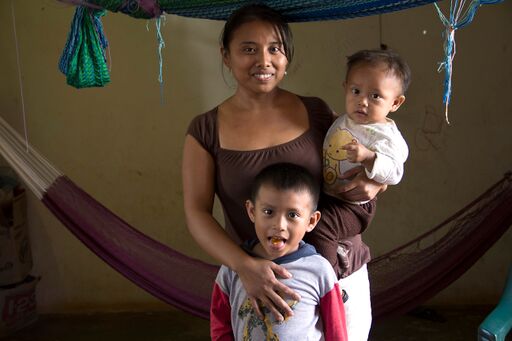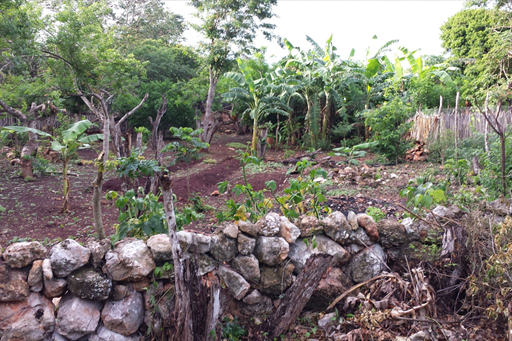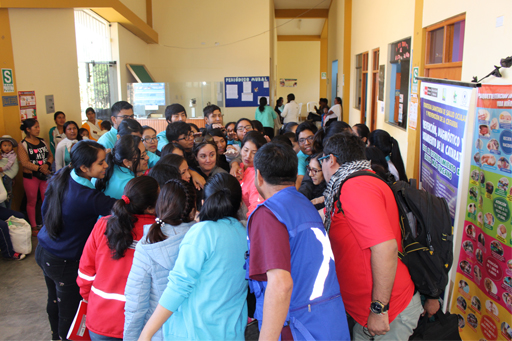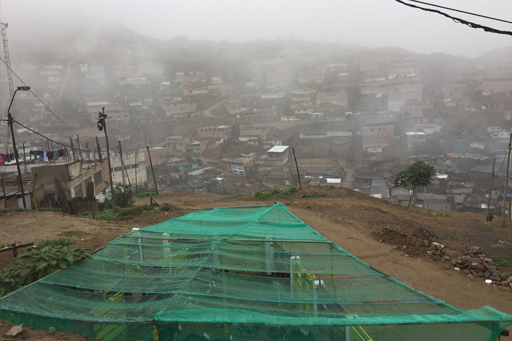Research Overview
I am an human evolutionary biologist with a research focus on reproduction, behavior and development, and several years of field research experience in Latin America. I earned my PhD at The University of New Mexico , where I was a National Science Foundation Graduate Research Fellow. In my dissertation research, I linked variation in infant feeding patterns and immune system development to energetic and epidemiologic conditions in indigenous South American farmers and foragers, the Amazonian Tsimane (Bolivia) and the savannah Pumé (Venezuela). In my postdoctoral research at Harvard University's Department of Human Evolutionary Biology, I expanded my research geographically and thematically by examining the effects of globalization and modernization on infant and child nutrition and growth in Yucatec Maya subsistence farmers. My current projects monitor maternal-child health outcomes in Mexican and Peruvian indigenous communities, while examining the impacts of migration, urbanization, and modernization, and the medicalization of birthing and breastfeeding practices. My research is grounded in life history theory, examines mechanisms of human evolutionary biology, and illuminates several biocultural processes that underlie global health inequities.
My research has been published in the Advances in Nutrition, Journal of Human Lactation, Social Science and Medicine, PlosOne, Physiology and Behavior, Encyclopedia of Evolutionary Psychological Science, Current Psychology, American Journal of Human Biology, American Journal of Biological Anthropology, Philosophical Transactions of the Royal Society B, Ecology of Food and Nutrition, American Anthropologist, and several interdisciplinary anthologies. In-print publications can be found at the Google Scholar and Research Gate websites.Research Projects
In Latin America, cesarean delivery rates are rising faster than in any other world region. While life-saving procedures in a small number of cases, cesarean sections can have unexpected mother-child health consequences. These outcomes have not been well studied in epidemiologically transitioning indigenous populations. Therefore, Karen Kramer and I launched an investigation of rising cesarean delivery rates in Yucatec Maya subsistence farmers. We continue to study the impact of cesareans on the energetic trade-offs that underlie infant growth, immunological maturation, and gut microbiome assembly. Our papers on the links between cesarean birth and childhood growth in Yucatec Maya farmers show a modulatory effect even in the absence of childhood obesity, and have received international media attention.


Indigenous populations worldwide are susceptible to negative health outcomes due to colonial policies and globalization, racism, and poverty. Despite efforts to improve health care access in Latin America, this remains the reality. Indigenous health often worsens under conditions of rapid modernization and urbanization. This collaborative project between myself, Violeta Rojas , and Rocio Chavez (Universidad Nacional Hermilio Valdizán (UNHEVAL), Huánuco), analyzes health outcomes in several Peruvian indigenous communities that are currently urbanizing and modernizing, either due to a recent migration event, or because of adjacency to an urban center. This project investigates nutritional, epidemiologic and social factors that have synergistic effects on immune function and metabolic health in Peruvian indigenous populations.


